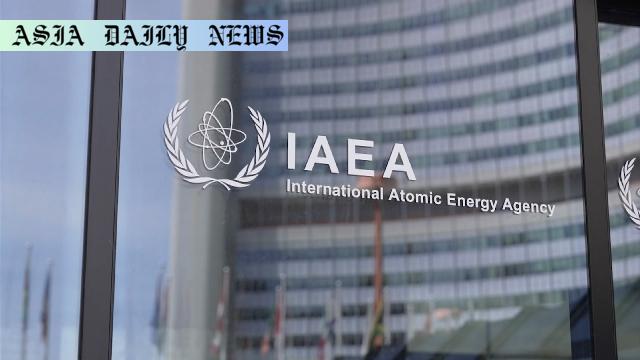IAEA Report reveals nuclear-related activities in Iran’s undeclared sites, affecting ongoing U.S.-Iran negotiations.
- IAEA Report uncovers nuclear-related activities at Iranian sites.
- Findings could impact critical nuclear talks between Iran and the U.S.
- Iran responds by labeling the report ‘biased and baseless.’
- IAEA reports Iran’s 60% uranium stock has risen significantly.

The International Atomic Energy Agency (IAEA), a prominent nuclear watchdog under the United Nations, has recently made groundbreaking revelations regarding Iran’s nuclear activities. Their investigation uncovered traces of nuclear materials at several undeclared locations, raising concerns about Tehran’s commitments to nuclear agreements and its overall transparency regarding its nuclear program.
IAEA’s Investigation and Critical Findings
Between 2019 and 2020, the IAEA’s thorough investigations uncovered traces of uranium at multiple undeclared sites in Iran. According to the findings, these nuclear-related activities appear to date back to the early 2000s. This revelation suggests a potential breach of international nuclear agreements and raises questions regarding the true scale and intent of Iran’s nuclear ambitions.
More alarmingly, a separate report from the IAEA indicated that Iran’s stockpile of uranium enriched to 60 percent has increased significantly – approximately 1.5 times higher than the stock level recorded in February. This enrichment level far exceeds the limit of 3.67 percent established under the Joint Comprehensive Plan of Action (JCPOA), the nuclear agreement Iran signed with major world powers in 2015. Such developments amplify fears of proliferation and nuclear weapon potential in the region.
Iran’s Response to the Allegations
Iran has strongly dismissed the IAEA’s findings, characterizing the report as politically motivated and entirely baseless. The Iranian Foreign Ministry and the Atomic Energy Organization jointly issued a statement labeling the allegations as fabricated accusations designed to pressure Tehran on the global stage. They further warned that any hostile decisions made during the IAEA Board of Governors meeting, scheduled for June 9, would prompt retaliatory measures from Iran. This defiant stance underscores the strained relationship between Iran and international nuclear watchdogs, complicating efforts to rebuild trust and cooperation.
Impact on U.S.-Iran Nuclear Negotiations
The timing of these revelations could have a profound impact on the already fragile nuclear negotiations between Iran and the United States. For months, diplomatic efforts have aimed to revive the JCPOA after the U.S. withdrawal under the Trump administration in 2018. However, the discovery of undisclosed nuclear activities adds a layer of mistrust and casts doubt on the possibility of finding common ground.
The increase in Iran’s uranium stockpile further complicates the situation. Enriching uranium to 60 percent pushes the nation closer to weapon-grade levels, intensifying concerns among world powers and sparking fears of a nuclear arms race in the Middle East. This escalation underscores the urgent need for a resolution, but it also raises questions about the effectiveness of past agreements and enforcement mechanisms.
Global Implications and the Role of the IAEA
The role of the IAEA in maintaining nuclear non-proliferation is paramount to global security. These recent findings underscore the need for rigorous inspections, transparent reporting, and cooperative diplomacy to prevent the spread of nuclear weapons. However, such discoveries also highlight the challenges faced by international bodies in addressing state-level non-compliance.
Achieving a balance between upholding global non-proliferation standards and addressing the legitimate energy needs of nations like Iran requires nuanced diplomacy. The coming weeks will be pivotal as world powers, including the United States, evaluate how to respond to Iran’s actions while considering the broader implications for regional and global stability.
Conclusion
The IAEA’s report on undisclosed nuclear activities in Iran and the dramatic increase in enriched uranium reserves is a stark reminder of the complexities surrounding nuclear non-proliferation. As diplomatic tensions rise, it becomes ever more crucial for global actors to work collaboratively to address these challenges. Time is of the essence, as every delay risks further escalation and diminished prospects for peace.



Commentary
The IAEA Report and its Geopolitical Ramifications
The recent IAEA report on Iran has seemingly added another layer of complexity to an already fraught geopolitical landscape. As an international watchdog entrusted to safeguard against nuclear proliferation, the IAEA occupies a critical role. Its findings, though alarming, are indicative of diligent oversight and commitment to transparency. However, reports like these inevitably stir concerns and polarize international stakeholders, often leading to intensified scrutiny and heightened stakes in peace talks.
The Broader Impact on Trust and Diplomacy
The assertion that Iran engaged in nuclear activities at undeclared sites raises red flags, not only for the United States but also for the global community committed to preventing nuclear escalation. Trust, a critical foundation for any international agreement, becomes even harder to forge under such circumstances. The fact that Iran has significantly increased its uranium enrichment levels only exacerbates fears of intentions beyond peaceful nuclear energy use. These developments send ripples far beyond the Middle East, reaching any nation invested in global security.
Challenges Facing Diplomatic Efforts
The U.S.-Iran nuclear negotiations were already hanging by a thread, and these revelations act as a powerful disruptor to any progress. The timing of these findings seems to suggest political undercurrents that further complicate the path forward. Proponents of diplomacy must now redouble their efforts to ensure that talks continue while advocating for Iran to adhere to non-proliferation commitments. Meanwhile, skeptics of Iran may take these revelations as validation of their hardened stance, pushing for either stronger sanctions or alternative measures to curb nuclear advancements.
What Lies Ahead?
The IAEA’s findings and subsequent fallout serve as a critical reminder of the fragile balance inherent in global diplomacy. It underscores the urgency of finding common ground while clearing the air of suspicion. World leaders and international bodies must act swiftly to address these concerns if they hope to maintain non-proliferation efforts and avoid the specter of conflict. Lessons from this report should serve as a stark call to invest in measures that prioritize both security and understanding, ensuring a safer future for all.